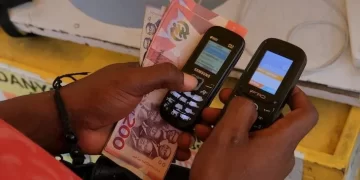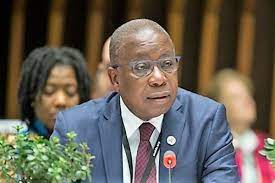Ghana’s Minister of Health, Kwaku Agyemang-Manu has called on all sectors of Ghana’s economy to closely collaborate in the fight against malaria.
According to him, achieving zero malaria in Ghana cannot be achieved by only the health sector and thus requires planning from all sectors.
“It is indeed impossible for the health sector alone to eliminate malaria. It is on this premise that I call on all sectors to own and commit to the elimination agenda. Beyond engagement and participation in the development of the National Malaria Elimination Strategic Plan, we need all sectors to plan, budget and commit resources to this fight, not only because we are all affected by Malaria, but also for the synergies and desirable impact it promises to achieve in our fight.” he said.
The Minister was speaking at a programme held by Ghana’s Ministry of Health in collaboration with the Ghana Health Service to commemorate the 2023 World Malaria Day.
The minister emphasized that he expects an even stronger collaboration within the Health Sector itself including all agencies, directories, divisions, departments, and units under the Ministry of Health to equally commit and align towards this fight.
“The malaria fight must operate within a strong, resilient, and sustainable health system in order to deliver its goal” he added.
On his part, the Director General of the Ghana Health Service, Dr Patrick Kuma-Aboagye indicated that it is feasible to achieve zero malaria in Ghana.
He says this will require an intensive effort on the part of all stakeholders especially when it comes to domestic resource mobilization to aid in the fight against the disease.
“International funding towards the fight against malaria is dwindling with uncertainties regarding the extent of future funding support. We need to intensify efforts for domestic resource mobilization and with this private sector engagement and involvement in the prevention, and implementation of malaria interventions that are needed to be heightened in our new quest for elimination.”
“This is paramount in addressing the funding gap for indoor residual spraying, seasonal malaria chemoprophylaxis, insecticide-treated nets campaigns, and expansion of the malaria vaccine initiatives. Malaria elimination is achievable if we all do our parts as stakeholders” he continued.
Dr. Kuma-Aboagye indicated that Malaria elimination is achievable if we all do our parts as stakeholders.
He said they draw inspiration from countries such as Algeria, Mauritius, Morocco, and recently China in 2021 who have eliminated malaria from their countries, deploying the very same tools as Ghana howbeit on a larger sustained scale.
Meanwhile, the World Health Organization Representative to Ghana, Dr Francis Kasolo says in order to achieve zero malaria, there is a need to target the poor and marginalized in society with malaria prevention, diagnosis, and treatment because they are more likely to be affected by malaria.
This he said is key in ensuring the attainment of Sustainable Development Goal 3 on health and wellbeing and specifically target 3.3 towards zero malaria.
Read also: Ugandan minister shot dead by his bodyguard
Source: Rosemond Asmah/ATLFMNEWS




























